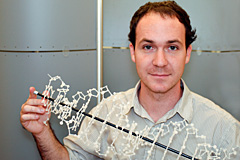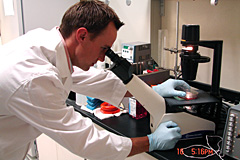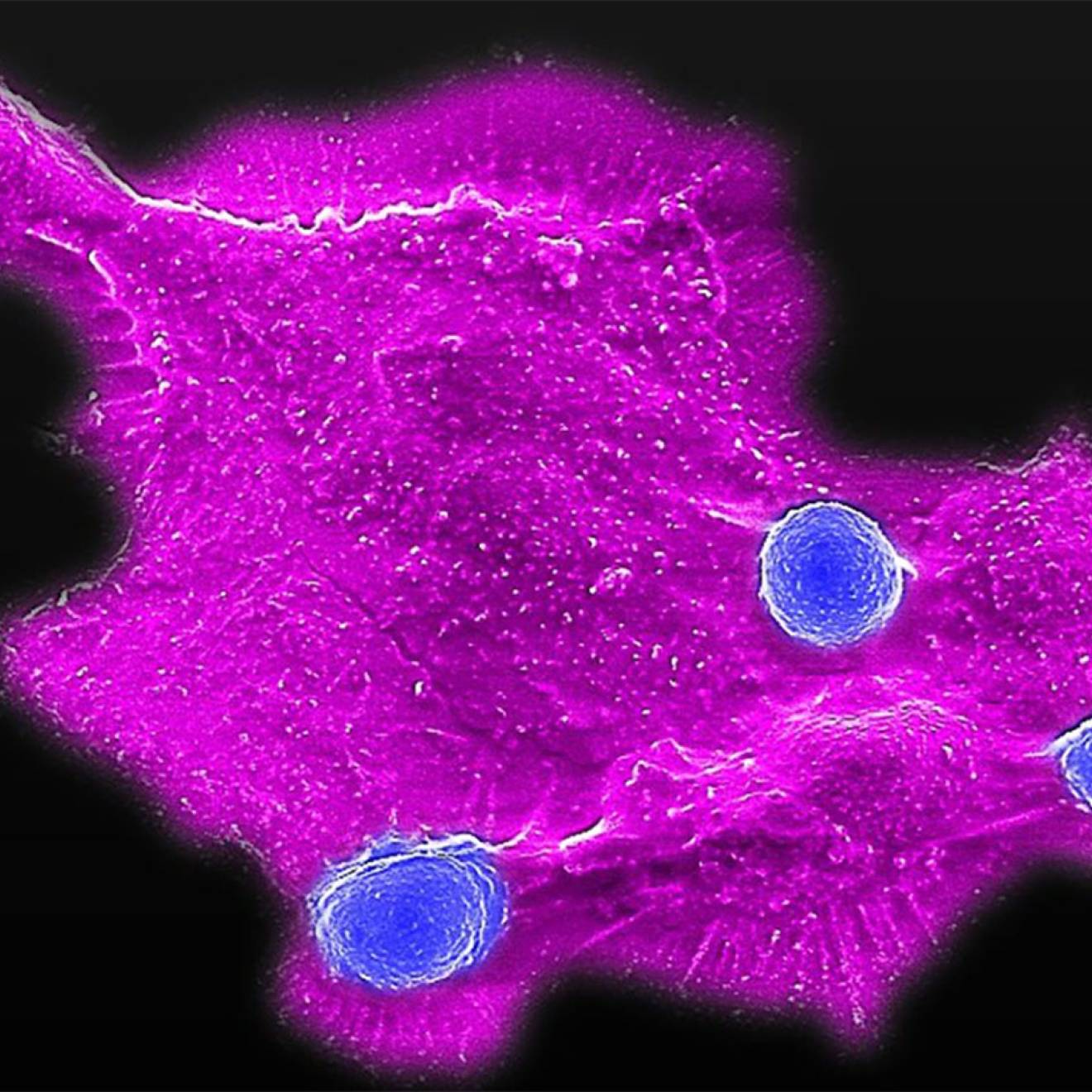Nicole Freeling, UC Newsroom
Eric Josephs, who received his Ph.D. from UC Merced in May, spends his days fixated on the exceedingly small: working to refine diagnostic devices that are the size of individual molecules, a thousand times smaller than the width of a human hair.
It's research that could contribute to a revolution in medicine — customizing care to a patient's unique genetic code.

Before such a breakthrough can occur, however, there is a puzzle to be solved. Josephs has been trying to figure out how to capture images of fast-moving molecules. That work will allow scientists to make the diagnostic devices more accurate.
"It's like trying to take a picture of a speeding car," he said.
The molecular paparazzo tinkers with the chemical and electrical charges on the surface of microscopic diagnostic devices, looking for a way to hold the molecules momentarily in place. "What you want to see is a new generation of cancer treatments tailored specifically to the patient and a new generation of early detection devices that have sensitivity at the molecular level," Josephs said.
Josephs is one of 20 UC graduate students visiting with lawmakers in Sacramento today (June 4) to explain the value of their work, to California and the nation.
UC trains 26,000 doctoral students and 6,400 postdoctoral fellows who are engaged in original research. Their work addresses issues like renewable energy, poverty, conservation and global health. They help reshape our understanding of art and culture, and create programs that strengthen communities and improve our schools.
And often, as with Josephs' work, the path that they follow is painstaking and arduous. Scientists and scholars might work for years on solving parts of a puzzle that, when put together, transform medicine, business, culture, or our knowledge of the world around us.
That daily work is far from headline-grabbing. Yet it forms the platform from which quantum leaps forward are made.
By telling legislators about their research, the graduate students aim to give lawmakers a better understanding of what they do, how they do it and why it merits public support.
"What I do is like being a reverse watch maker," said UC San Diego graduate student C. Taylor Gilliland, who has been studying a protein implicated in rheumatoid arthritis, multiple sclerosis and the spread of cancer.

"I take apart pieces of the protein and look at what makes it tick," said Gilliland, who is part of the delegation to Sacramento.
Every drug developed to target the protein thus far has not passed clinical trials, suggesting that this protein is more complex than first thought. Gilliland has made a novel observation: Rather than being entirely on or off like a light switch, the protein he studies acts more like a dimmer switch. "If we could turn down the activity just enough but not turn it off completely, we could avoid a lot of side effects while treating disease."
"While my research in and of itself may not directly result in a new drug," says Gilliland, "what it could do is lead to better understanding of these proteins that could then be applied beyond study of individual cells to research on tissues, then on organs and whole body systems, ultimately enabling the development of life-saving drugs."
"People often don't realize how many thousands of people, hundreds of hours and many little, incremental advances are required to make possible a major research breakthrough," said Steven Beckwith, UC vice president for research and graduate studies. "Together, UC's graduate students represent a resource for innovation and progress matched by few other institutions in the world."

